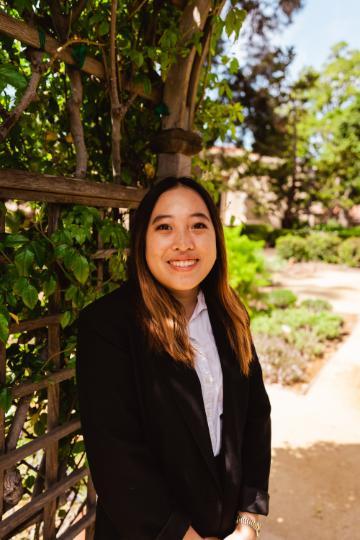Ashley Duong: How to Build Your Resume 101

Step 1: Work with What You Have!
One of the biggest challenges I often hear from people is having “nothing to put on a resume.” The truth? Everyone starts somewhere. It’s perfectly normal not to have a plethora of internships or professional experiences. What matters is how you showcase what you already do have under your belt.
Focus on these key areas:
- Leadership - Employers love to see leadership experience, and your resume is a great place to discuss different organizations or extracurricular activities you're a part of. I also think it’s great to highlight any relevant coursework you’ve taken that can perhaps show proficiency or foundational knowledge. Make sure to also highlight any awards or honors you have received! After all, your resume is essentially just a bragging sheet.
- Interests - Another aspect that I advocate for is including personal interests on your resume. Individual interests can help initiate a connection with your interviewer and can help lead to conversations that make you more memorable as a candidate.
- Non-Corporate Jobs - Maybe you didn’t have time to join any clubs or outside organizations due to part-time jobs. There are still plenty of ways to showcase how your work experience and the skills learned from it translate into useful opportunities for more professional settings.
Example: Flipped burgers and served customers
Reworked Example: Served over 150+ daily customers and streamlined cook to wait time by 15% increasing revenue by 10% and efficiency by 20%.
The difference? The second version uses the STAR Method (Situation, Task, Action, Result) and quantifies the achievements to showcase job impact. With this approach, your experiences become compelling and professional.
Step 2: Building Upon the Foundation
While you may have the foundation of a resume, it’s important to continuously keep building upon it to showcase your growth as a student and young professional. Interning is the easiest way to build new skills and showcase new experiences. However, there are plenty of other great methods to expand upon your resume. Learning new technical skills such as a coding language or becoming proficient in a particular software or application is always a helpful way to showcase that you are a continuous learner. Getting involved in case competitions can be a way for you to familiarize yourself with industry knowledge and display your critical thinking and problem-solving abilities. Extra points if you place or even win! Of course, getting involved with on-campus organizations or off-campus groups is a simple way to gain leadership experience and display how you work with others in group settings. These are just a few simple ways that you can continuously improve your resume. The key is to add fresh and relevant experiments to showcase how you are proactive about your professional growth.
Your resume is more than just a list of experiences. It’s a snapshot of your potential! By implementing these simple steps, your resume will be in tip-top shape, and you’ll be landing interviews in no time!
